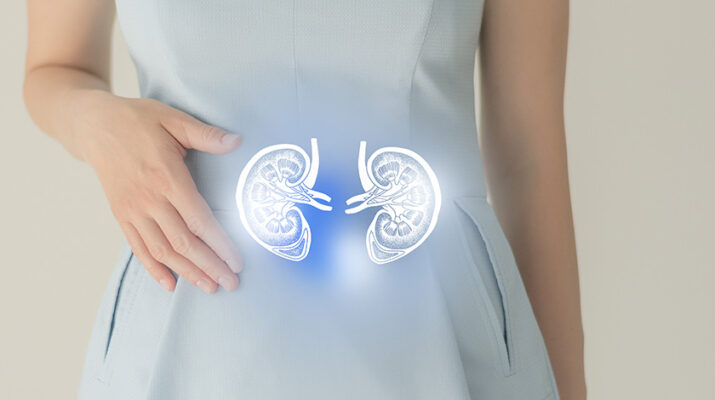By Ernst Lamothe Jr.
It’s a condition that arises gradually, but it can cause tremendous pain and affect quality of life. Chronic kidney disease, also called chronic kidney failure, involves a measured loss of kidney function.
A kidney’s function involves filtering wastes and excess fluids from the blood, which are then removed in your urine.
Advanced chronic kidney disease causes dangerous levels of fluid, electrolytes and wastes to build up in your body.

“People should care about kidney disease individually because it is likely to affect someone they know,” said nephrologist Rebecca Levy, an assistant professor of nephrology at University of Rochester Medical Center.
“As a community, we should care about CKD [chronic kidney disease] because it’s expensive. Medicare spent more than $87 billion on treating people with CKD and more than $37 billion on dialysis care,” according to the Centers for Disease Control and Prevention.”
Levy discusses five aspects of kidney disease.
1 — Kidney issues for youth and adults
Some common kidney issues that affect children and adults are kidney stones, kidney infections, acute kidney injury and chronic kidney disease. Chronic kidney disease is especially important because more than one in seven US adults — and as many as nine in 10 adults — have the condition.
“In the US, the two leading causes of chronic kidney disease are high blood pressure and diabetes,” said Levy. “Even though most people with CKD will not go on to kidney failure, it can worsen with other health conditions.”
In addition, there are racial, ethnic, and socioeconomic status disparities in both incidence of CKD and risk of progression to kidney failure that should be considered.
2 — Misconceptions
There are various misconceptions when it comes to the condition. Sometimes people consider the word chronic and believe it means severe. In actuality, it means long term. Chronic kidney disease progress slowly and people may not notice for some time until their kidneys are seriously damaged.
“What I have come across is that people think kidney disease is rare. But, as I mentioned earlier, it is not,” said Levy. “Also most people with chronic kidney disease don’t feel sick and have normal levels of urine output. The only way for most people to know they have CKD is to have blood and urine testing.”
3 — Kidney disease signs
There are very few signs of early or moderate CKD that only blood or urine testing will show. In very advanced CKD, people may experience the symptoms of toxin buildup, confusion, loss of appetite or foul taste, nausea and vomiting, or itching. They may also notice the effects of fluid accumulation, including leg swelling and shortness of breath.
“Kidney stones are usually present with flank pain and blood in the urine. People suffering from kidney infections may have fever, vomiting and pain with urination,” she added.
4 — Family history
Some kinds of kidney disease are directly inherited on a single gene, like polycystic kidney disease. Other kidney diseases come about as a combination of many genes in addition to environmental factors, which also tend to run in families.
“The two main causes of kidney disease in the US, hypertension and diabetes, also run in families. For all these reasons, we often see a family history of CKD,” said Levy.
She added the best things you can do to avoid kidney problems are likely the same things you do for the rest of your health. Eat a balanced diet that includes more plants than animals. Try to get moderate exercise most days of the week.
“If you already have hypertension or diabetes, follow your doctor’s advice and prescriptions to control these diseases as tightly as possible. Don’t smoke and maintain a normal body mass index. Ask your doctor if you should be tested for CKD,” she said.
5 — How does dialysis work?
Dialysis is a procedure that replaces kidney function in people with kidney failure. It doesn’t fix the kidneys themselves. Dialysis gets rid of the extra fluid. You can get dialysis treatments in a number of different ways: blood dialysis or belly dialysis (peritoneal dialysis), in a dialysis center or at home. They all serve the same purpose and work equally well to do that.

